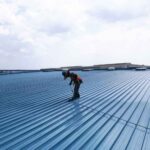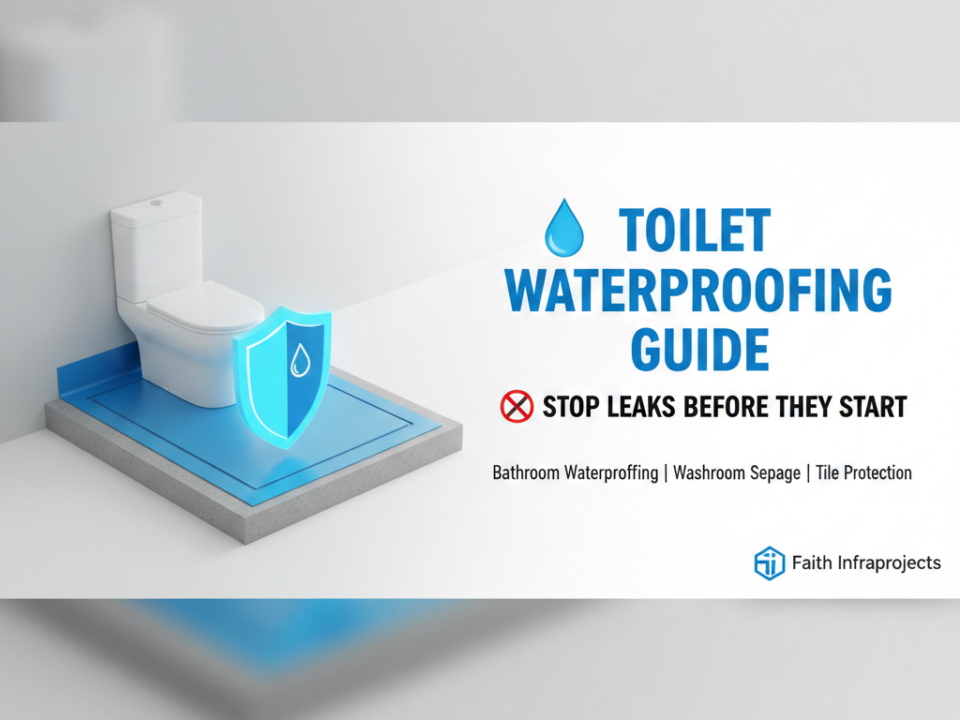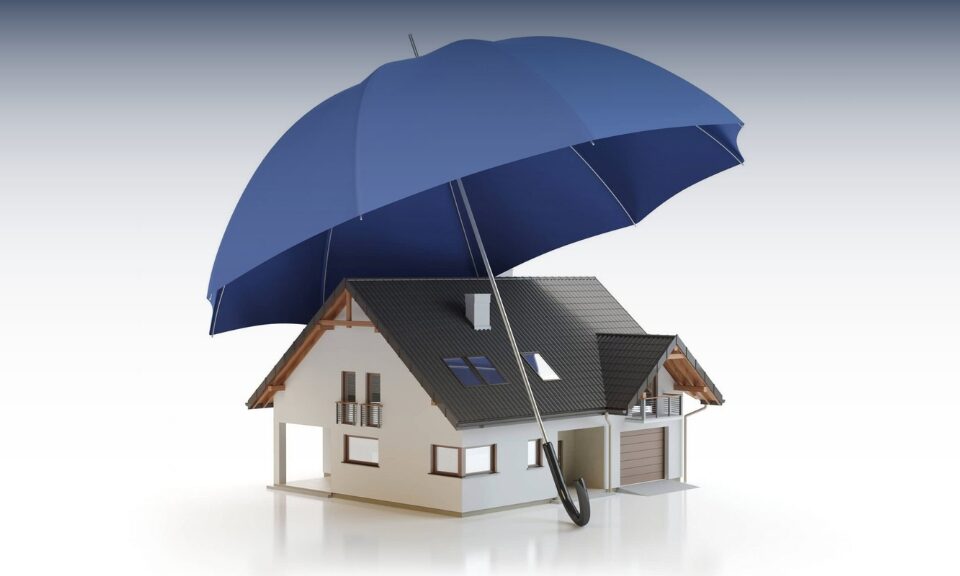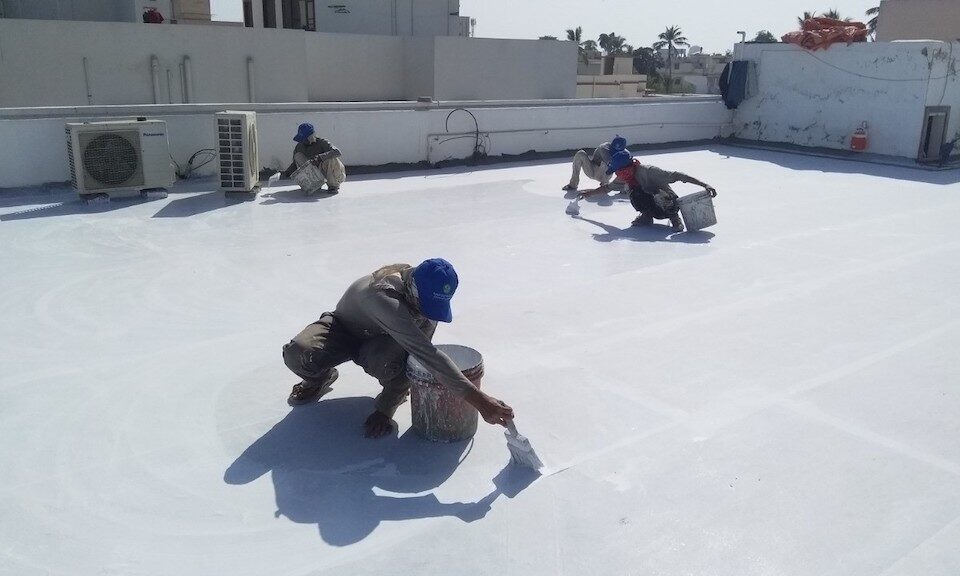When it comes to protecting your home or commercial property, waterproofing services are not just an option — they’re essential. From leaking roofs to damp walls, moisture can silently damage your structure, interiors, and health. That’s why investing in the right waterproofing solutions today can save you from expensive repairs tomorrow.
In this blog, we’ll explore everything you need to know about waterproofing — including the best materials, treatments, and how professional waterproofing contractors can help you keep your property dry and secure.
What are Waterproofing Services?
Waterproofing services involve the application of specialized materials and techniques to prevent water from penetrating building surfaces like roofs, walls, basements, bathrooms, and more. These services are essential in protecting structures from moisture-related issues such as leaks, dampness, mold growth, and structural deterioration. By using solutions like waterproof coatings, sheets, cement additives, and sealants, waterproofing ensures long-term durability, safety, and comfort. Whether for a new construction project or repairing existing water damage, professional waterproofing services are a critical investment in the health and lifespan of any property.
Waterproofing services involve applying specialized treatments and materials to structures to prevent water from penetrating surfaces. These services are essential for areas like:
- Roofs
- Basements
- Walls (internal & external)
- Bathrooms & kitchens
- Balconies & terraces
- Wooden furniture & plywood
Whether you’re building a new home, renovating an old one, or just fixing a persistent leak, waterproofing specialists can help you choose the right system tailored to your needs.
Why Waterproofing is Important?
Waterproofing is essential because it protects buildings from the damaging effects of water infiltration. Without proper waterproofing, moisture can seep into walls, roofs, and foundations, leading to serious issues like mold growth, peeling paint, weakened structures, and even health problems caused by damp indoor environments. It also helps preserve the strength and integrity of construction materials, preventing costly repairs in the future. Whether it’s a home, office, or commercial building, investing in reliable waterproofing solutions enhances longevity, improves safety, and maintains property value by keeping water out where it belongs.
Water is one of the most destructive forces for any building. Without proper protection, it leads to:
- Cracks in walls and ceilings
- Mold, mildew, and fungal growth
- Damage to furniture, electricals, and structure
- Unpleasant odors and respiratory issues
- Reduced property value
That’s why engaging experienced waterproofing contractors is crucial for long-lasting protection.
Popular Waterproofing Solutions
Waterproofing solutions come in various forms to suit different areas and types of structures. Common options include waterproof roof coatings that provide a seamless barrier against rain and UV rays, waterproofing coatings for walls to block moisture and prevent dampness, and waterproof cement additives that enhance concrete’s resistance to water. Waterproofing sheets (like bitumen or PVC membranes) are widely used for basements and terraces, while waterproof plywood is ideal for moisture-prone interiors like kitchens and bathrooms. Additionally, sealants, waterproof glues, and tapes are used to seal joints, cracks, and pipe areas. These solutions, often combined by professionals, offer effective, long-term protection against water damage.
1. Waterproof Roof Coating
Your roof is the first point of contact during rain. A waterproof roof coating creates a protective membrane that prevents leaks and heat absorption.
Benefits:
- UV resistant
- Crack-bridging flexibility
- Long-lasting performance
2. Waterproofing Coating for Walls
Walls face both external weather and internal humidity. Applying a waterproofing coating protects paint, plaster, and bricks from moisture damage.
Ideal for:
- Exterior facades
- Bathroom walls
- Basement walls
3. Waterproof Cement and Concrete Solutions
Concrete is porous and can absorb water over time. Modern waterproof cement additives and coatings seal micro-cracks and pores, ensuring water resistance.
Commonly used in:
- Foundations
- Slabs
- Terraces
4. Waterproofing Sheet for Wall & Roofs
A waterproofing sheet acts as a physical barrier against water. These sheets are often made from bitumen, HDPE, or PVC.
Applications:
- Flat roofs
- Basement walls
- Under-tile layers
Looking for a waterproofing sheet for wall protection? These are especially useful in industrial and large residential projects.
5. Waterproof Plywood and Furniture Protection
Moisture doesn’t just affect your building — it also damages interiors. Using waterproof plywood or water proof plywood for furniture in kitchens and bathrooms ensures durability and resistance to swelling or warping.
Use it in:
- Kitchen cabinets
- Bathroom vanities
- Utility area storage
Choosing the Right Waterproofing Contractors
Not all waterproofing companies are created equal. For effective, long-term results, it’s essential to hire experienced waterproofing contractors who understand your specific needs.
- Certified waterproofing specialists
- High-quality materials and tools
- Clear inspection and diagnosis
- Warranty on services
- Positive customer reviews
Professional waterproofing companies also guide you on preventive maintenance, ensuring your investment lasts longer.
Signs You Need Waterproofing Services
- Damp patches on walls or ceilings
- Peeling paint or bubbling wallpaper
- Foul odors from hidden mold
- Cracks in concrete or plaster
- Furniture swelling or discoloration
- Water stains after rainfall
If you notice any of these, it’s time to call a waterproofing specialist for waterproofing services.
Trusted Waterproofing Materials in the Market
- Waterproof Cement Additives
- Bitumen Waterproofing Sheet
- Elastomeric Waterproof Coating
- Silicone & Acrylic Sealants
- Waterproof Glue and Primers
- PVC Membranes for Roofs and Balconies
These materials are often combined for layered protection based on the severity and type of moisture risk.
Final Thoughts: Waterproofing is Peace of Mind
Whether it’s your home, office, or commercial space — waterproofing services are critical for structural safety and comfort. From waterproof plywood to roof coatings and cement additives, modern waterproofing services are versatile, effective, and more affordable than ever.
By partnering with professional waterproofing companies, you ensure expert treatment, long-term protection, and zero future headaches.
Key Takeaways
- Waterproofing services protects your property from damage and decay.
- Roof, walls, bathrooms, basements, and furniture must all be waterproofed.
- Choose certified waterproofing contractors for reliable results.
- Products like waterproofing sheets, glue, coating, and cement are essential tools.
Need Help with Waterproofing?
Looking for expert waterproofing services near you? Get in touch with trusted waterproofing companies in Delhi NCR today for a site inspection and custom solution. Don’t wait for the next leak — prevent it with the right treatment now!
Frequently Asked Questions (FAQ) About Waterproofing Services
Q1. Why is waterproofing necessary for homes and commercial buildings?
Waterproofing is necessary because it prevents water seepage, dampness, and mold that can damage walls, roofs, and foundations. It also increases property life and saves money on costly repairs.
Q2. Which areas of a building need waterproofing the most?
The main areas that need waterproofing are roofs, basements, bathrooms, kitchens, exterior walls, balconies, and terraces. Furniture in moisture-prone areas also benefits from waterproofing.
Q3. How do I know if my property needs waterproofing services?
You need waterproofing if you see damp patches, peeling paint, moldy smells, swollen furniture, or water stains after rain. These are clear signs of moisture damage.
Q4. What are the most popular waterproofing solutions?
Popular waterproofing solutions include roof waterproofing coatings, wall waterproofing paint, cement additives, waterproofing sheets (PVC, HDPE, bitumen), sealants, and waterproof glue.
Q5. How long does waterproofing last?
Waterproofing lasts 5 to 15 years depending on the product quality, surface preparation, and maintenance. Professional services ensure longer durability.
Q6. Can waterproofing be done in the rainy season?
Yes, some waterproofing can be done in the rainy season, but most treatments work best on dry surfaces. Experts recommend pre-monsoon waterproofing for maximum results.
Q7. Is waterproofing expensive?
Waterproofing is affordable compared to repair costs. The price depends on the area size and materials, but it saves you from expensive structural damage later.
Q8. Should I hire professional waterproofing contractors or do it myself?
Hiring professional waterproofing contractors is better than DIY. They use advanced tools, quality products, and provide warranties for long-lasting protection.
Q9. Can waterproofing protect wooden furniture and interiors?
Yes, waterproof plywood, sealants, and coatings protect wooden cabinets, vanities, and kitchen furniture from swelling, warping, and fungal growth.
Q10. How do I maintain waterproofing after treatment?
To maintain waterproofing, clean gutters, repair leaks quickly, avoid drilling in waterproofed walls, and schedule regular inspections.






